ChinaEthnoExp. Part II. Xi’an, Huashan, ChongqingMapOctober 7–27, 2014 Every place in China that serves food has a special sterilizer for chopsticks. The chopsticks are washed and then placed in this device, which promises to blast them with UV rays and microwaves. 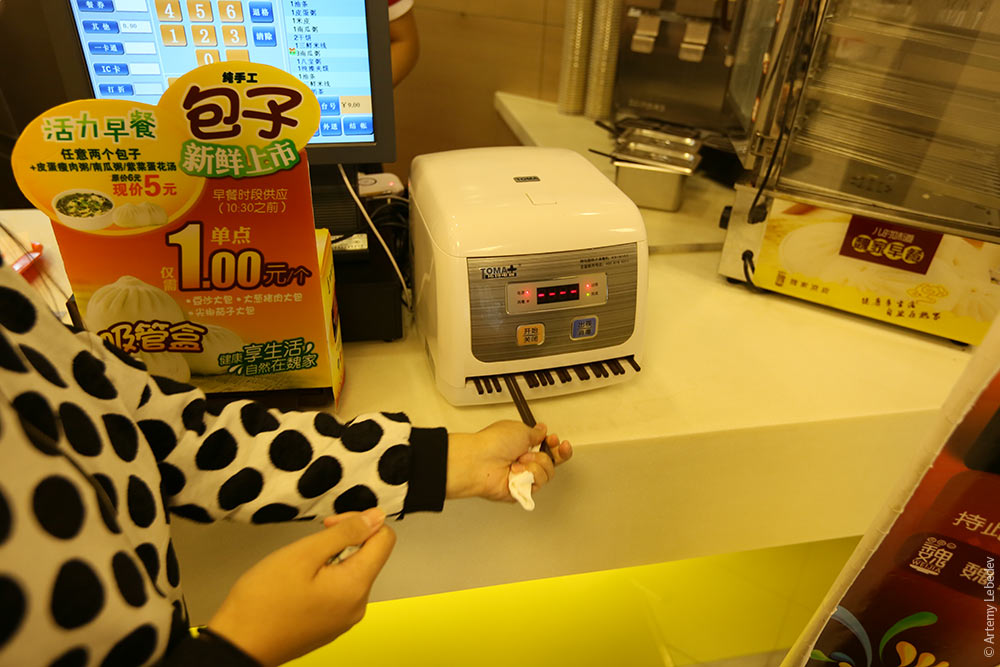 If you open it, you’ll see something like a steamer inside. And it elegantly serves up chopsticks for the next guest. 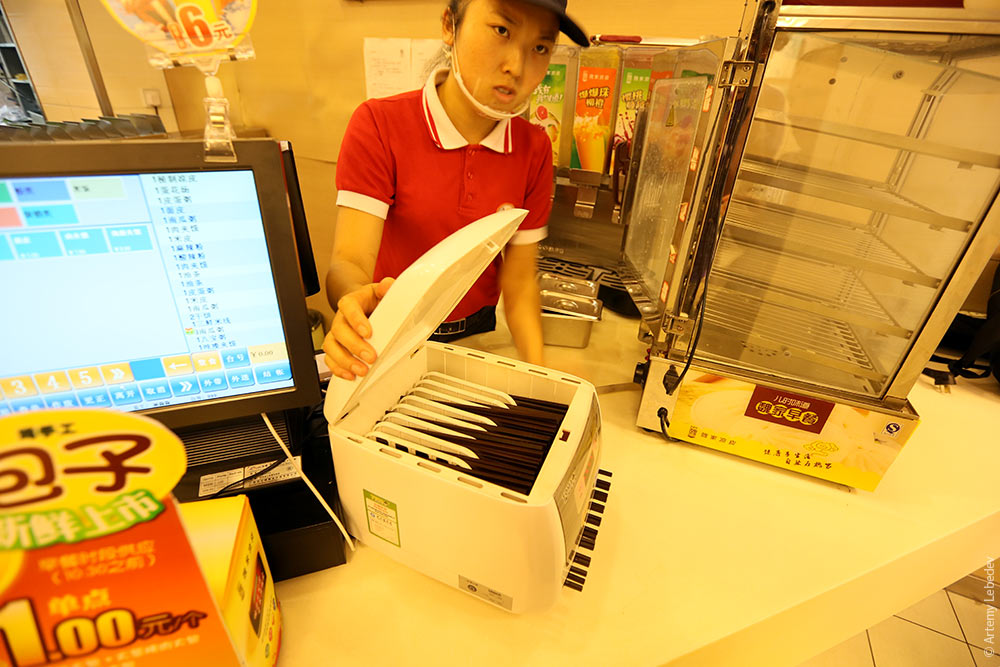 Xi’anMapA granny taking pics of the city. 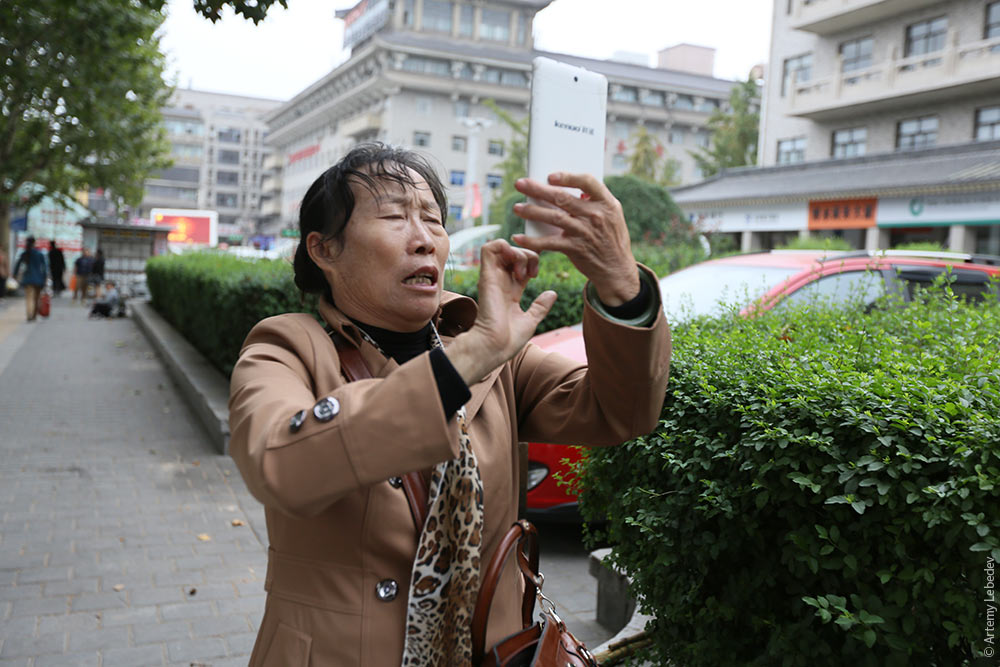 Live policemen control the traffic. 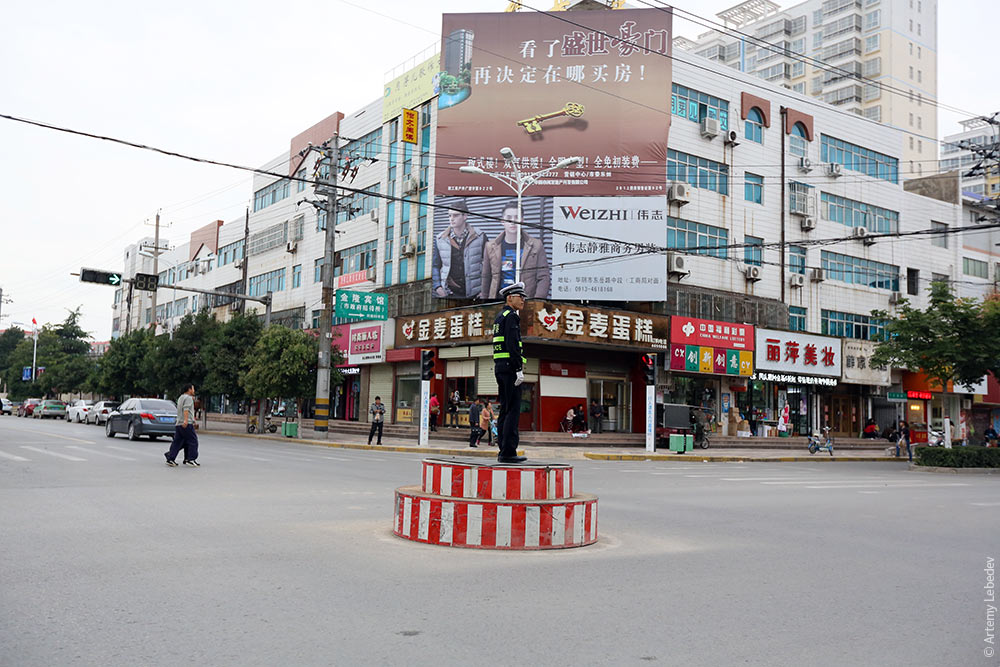 The police buses are impossibly cute. 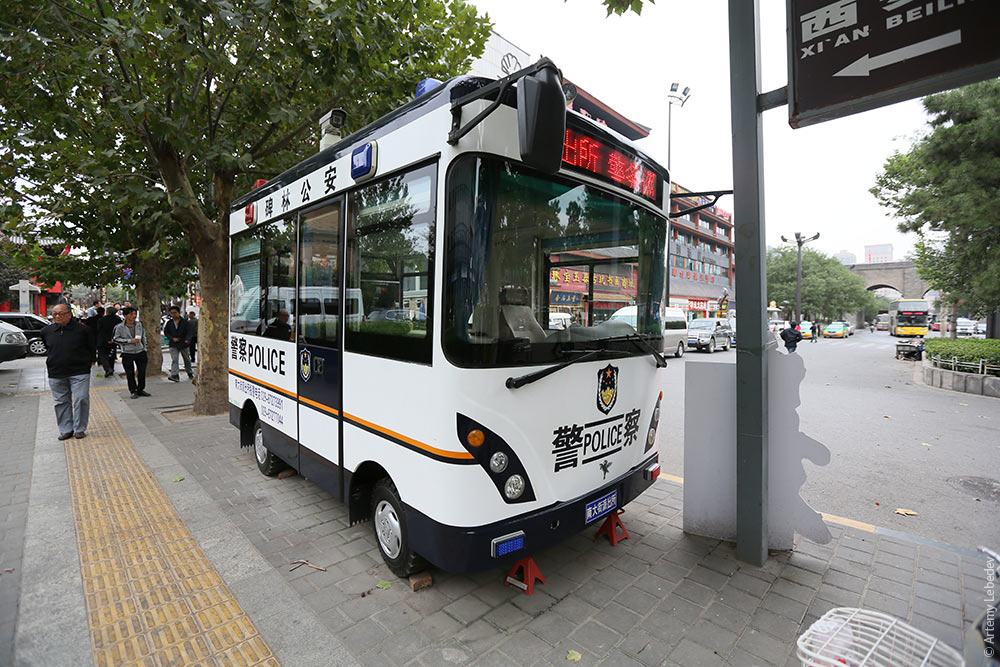 The fire hydrant is surprisingly Soviet looking. 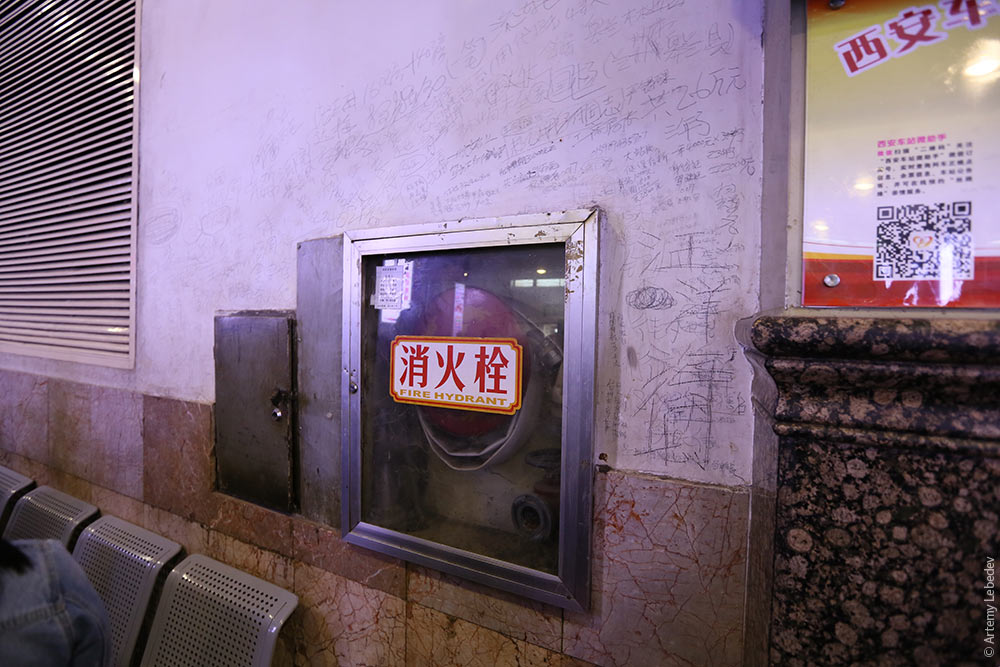 A traffic light. 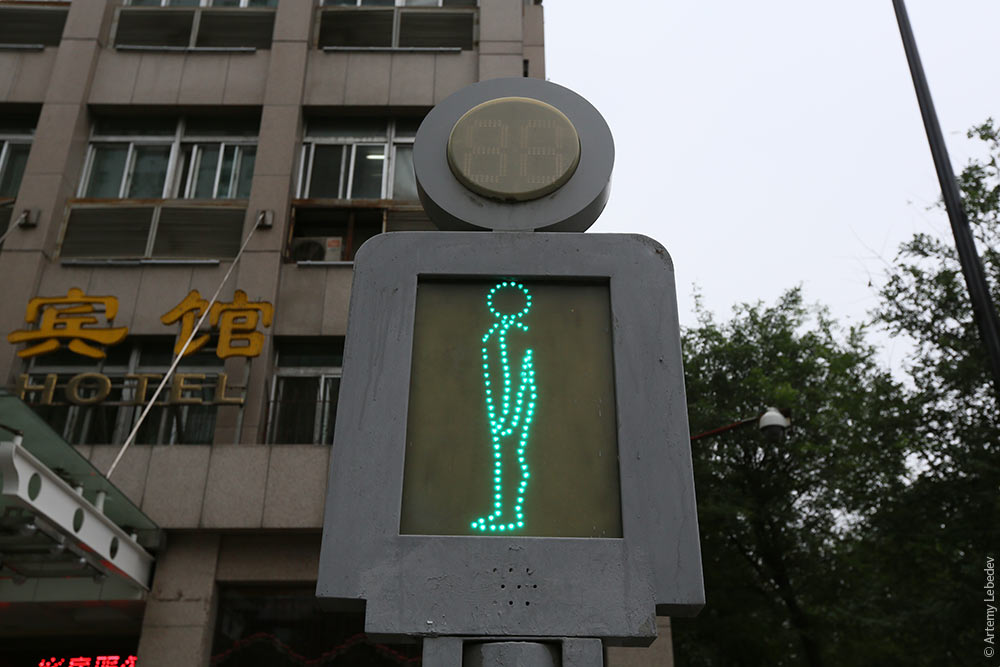 A metro was recently built in Xi’an. 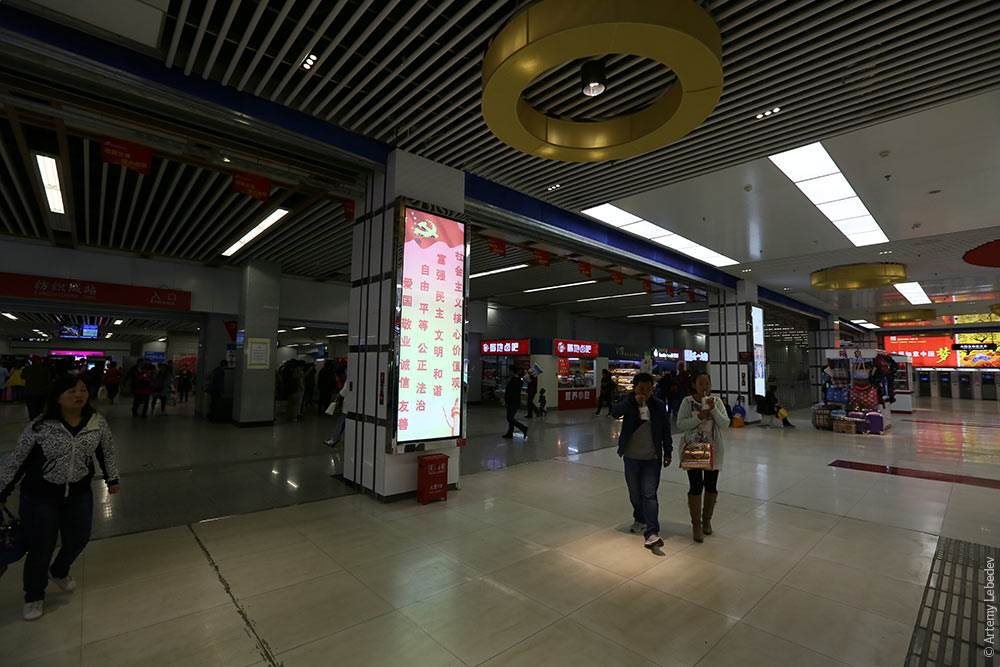 The ads in the cars are displayed on beautiful screens that look like giant iPads. 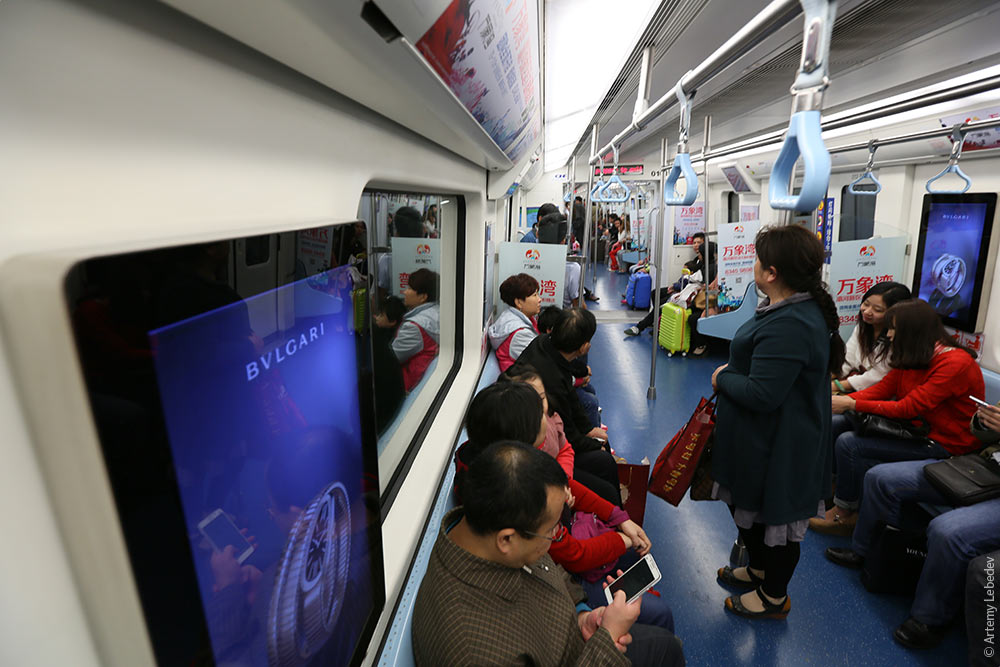 I’m eating a fried persimmon, a couple is driving by on a scooter, and a street cleaner is ramming garbage down into the can with her foot. The curbs are painted yellow and all the sidewalks have tactile paving. 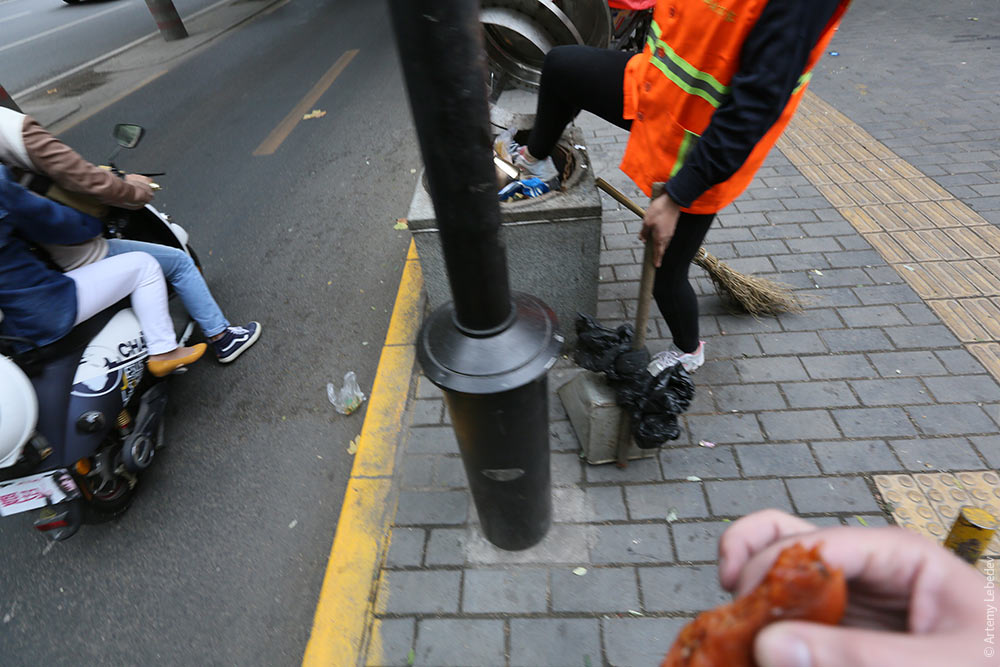 A special misting machine circulates through the streets of Xi’an, spraying water over the roadways. For a fresh, clean feeling. 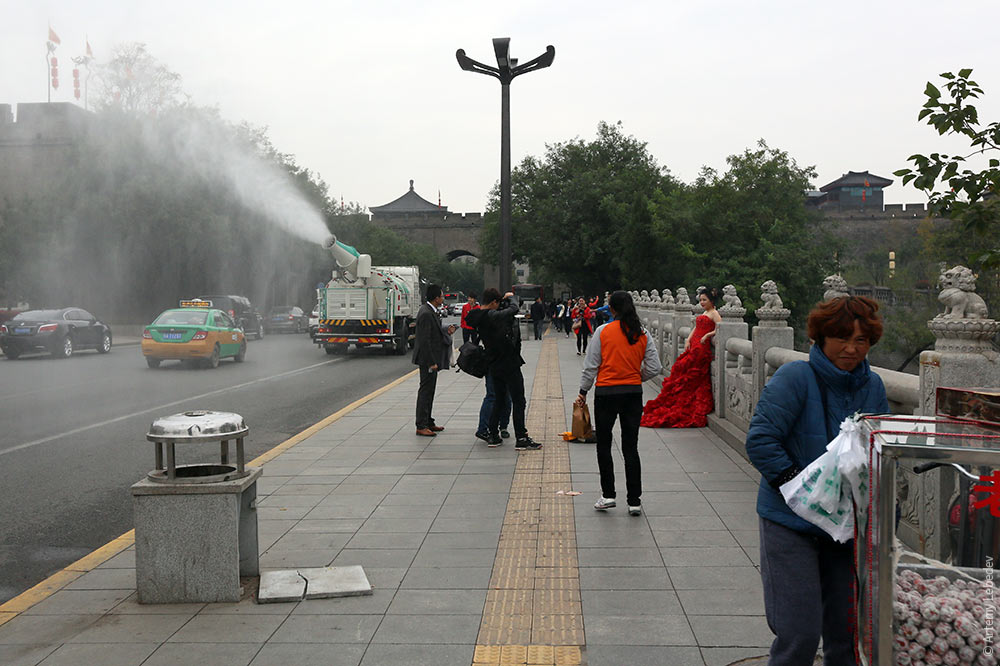 We take the train to Huashan—a big, beautiful mountain. We climb up the mountain. 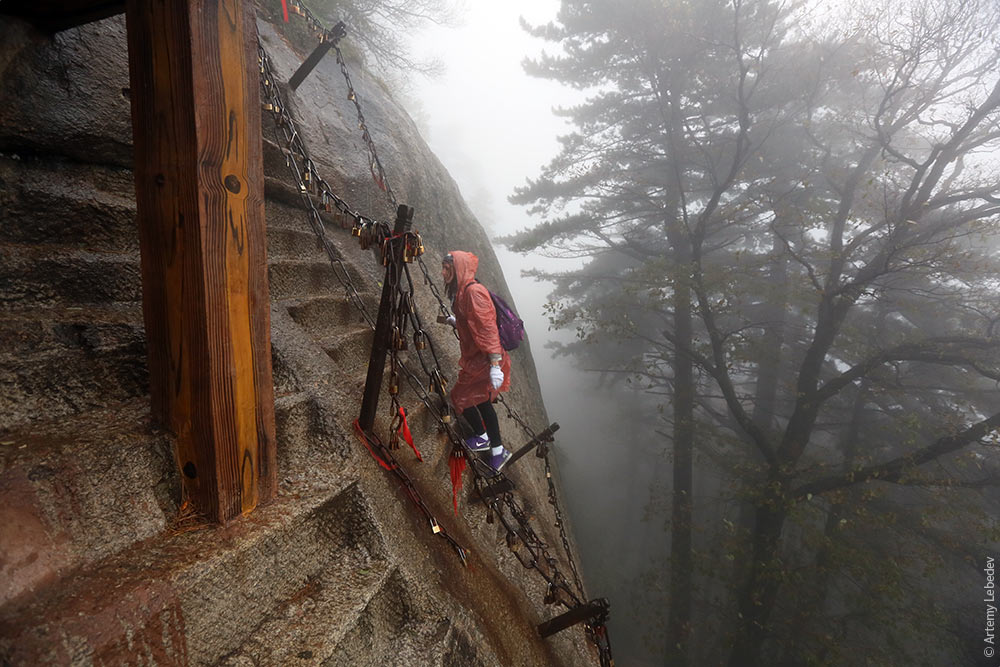 Everything is covered in ribbons and locks. 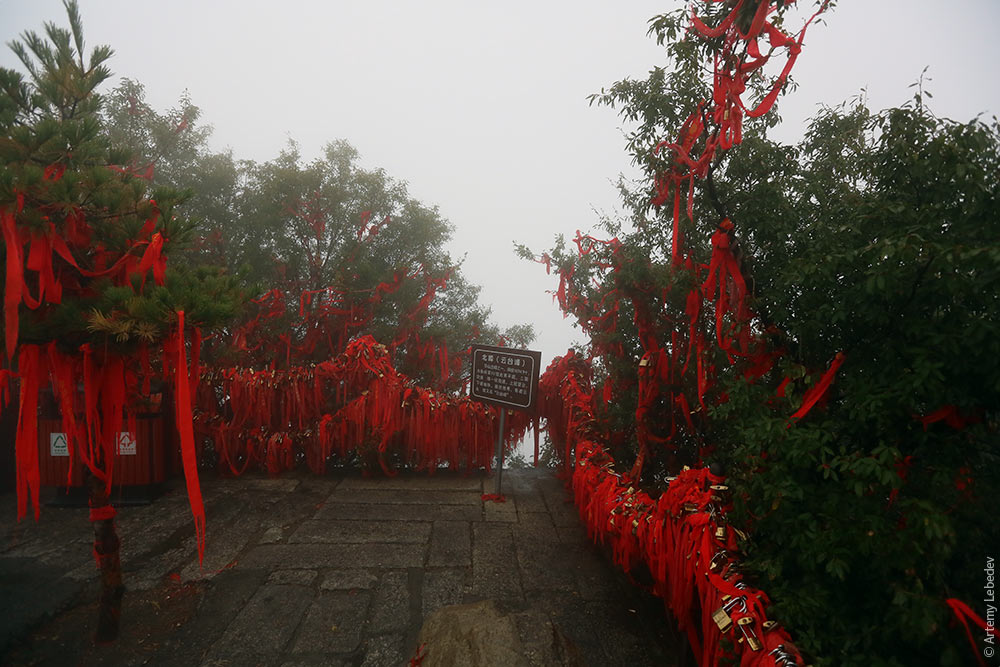 The plastic trash cans are made to look like tree stumps. 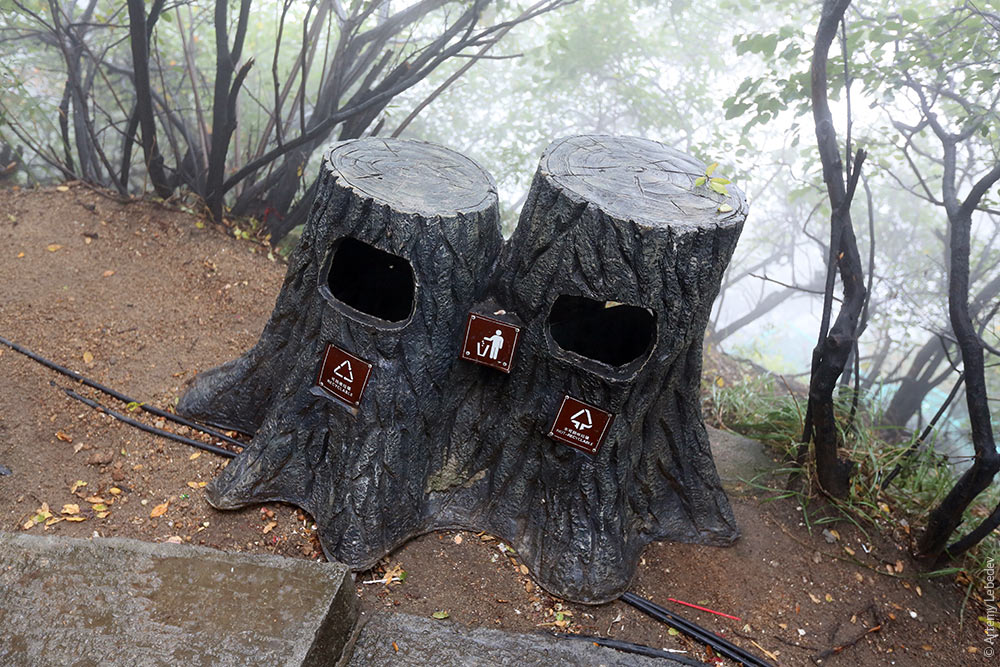 There are supposed to be beautiful views all around, but all we’re being served is fog. We climb higher. 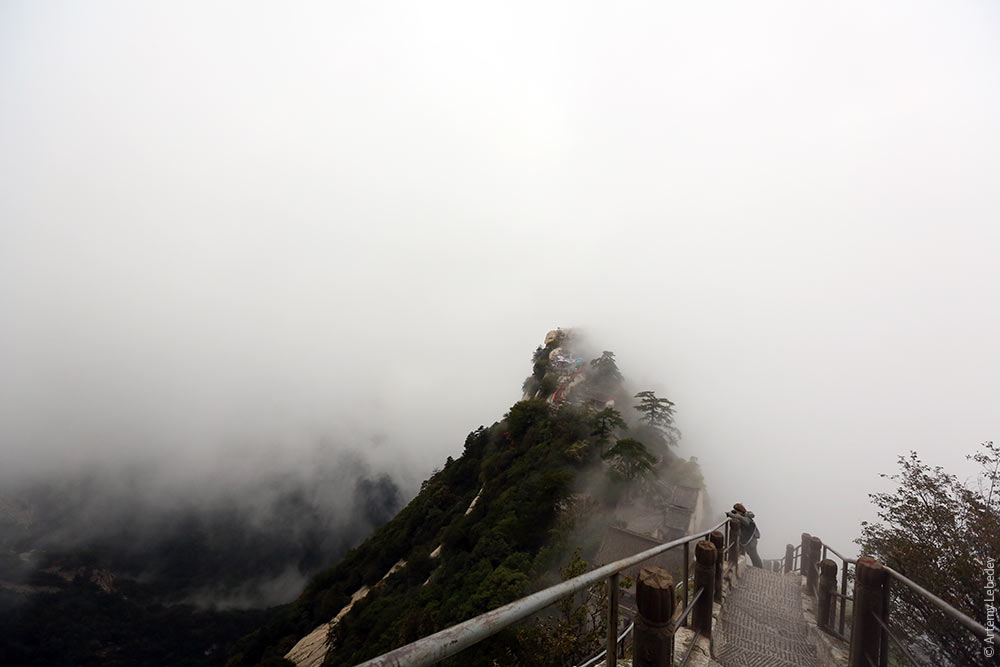 At night, without hot water or a shower, with no wine or heat, we eat dinner at a restaurant up on the mountain. Everything is expensive; the service is terrible. When we ask for an extra soup bowl, we’re told that it’s one bowl per customer—stop being so high-maintenance, friends. The exorbitantly expensive hostel puts us in a room with three other Chinese people. Meanwhile, dozens of people are sleeping outside. They’ve trudged up the mountain in the hopes of seeing the famous sunrise, but all they’ll be getting is fog. Every run to the bathroom is a test of the will. We’re freezing and dreaming of coming back down the next morning. 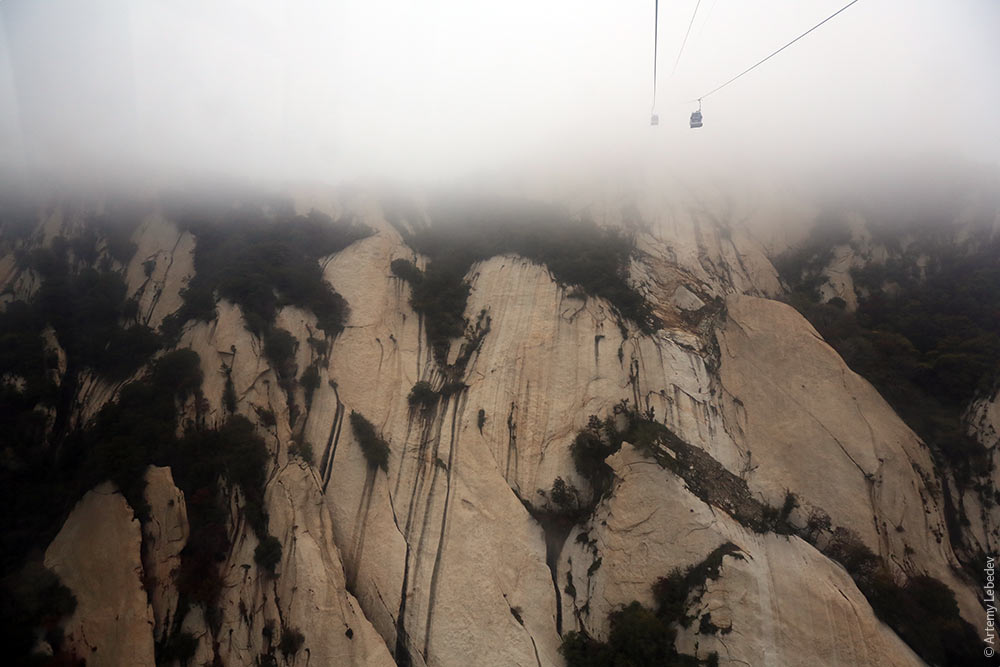 An ancient Chinese printing press. First the paper is tamped down onto the rock. Then the craftsman taps the whole thing with a big inked pad. The result is white characters on a black background. 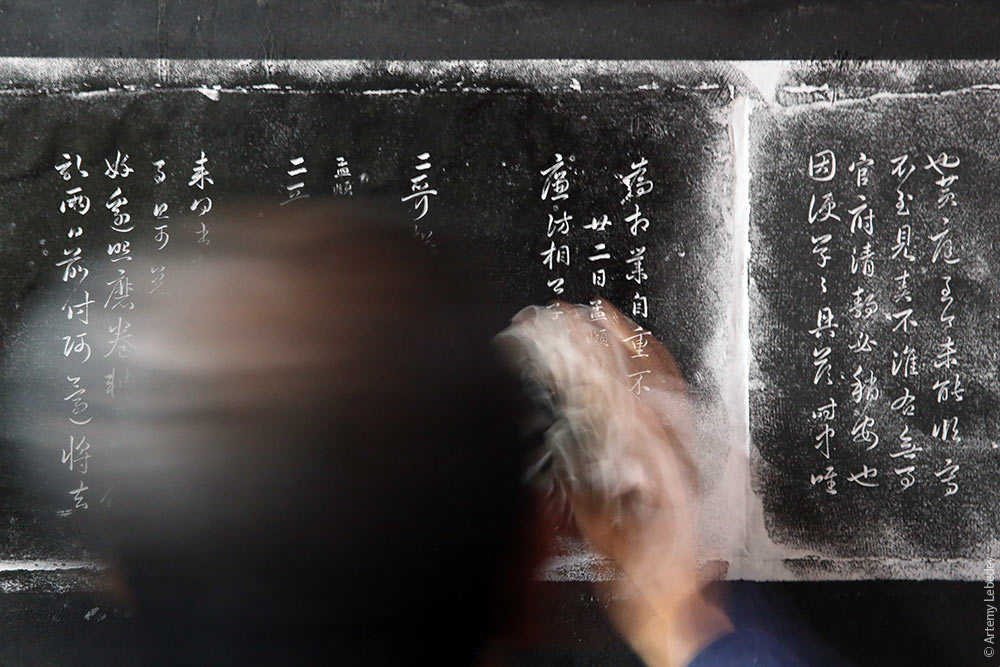 ChongqingMapA safety sign by the river—with photos of drowned bodies, naturally. 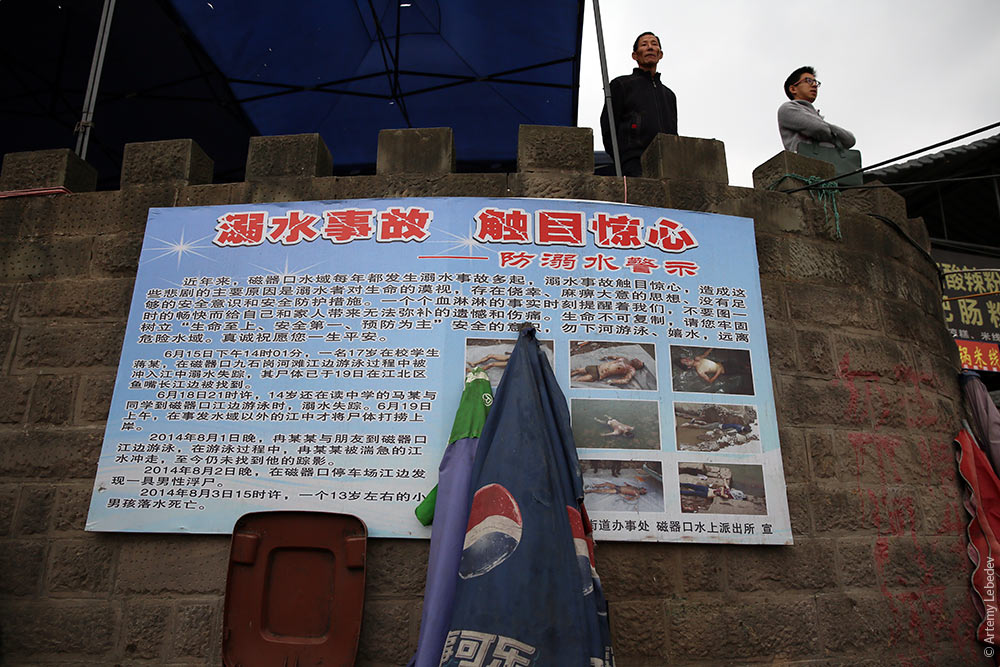 The hammer and sickle look strange against the backdrop of rampant Chinese capitalism. 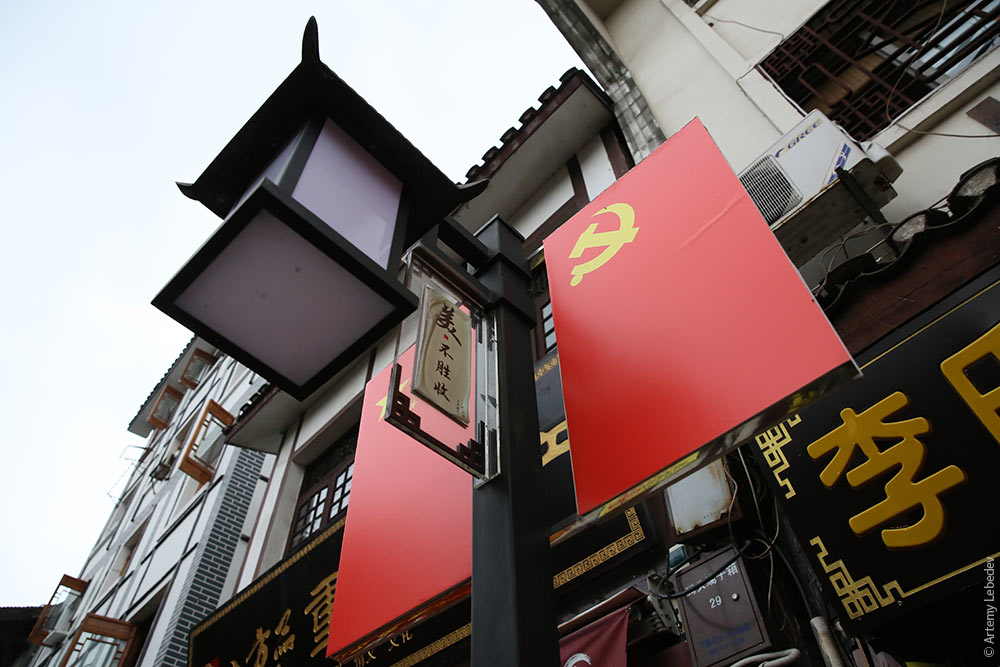 Fishermen. 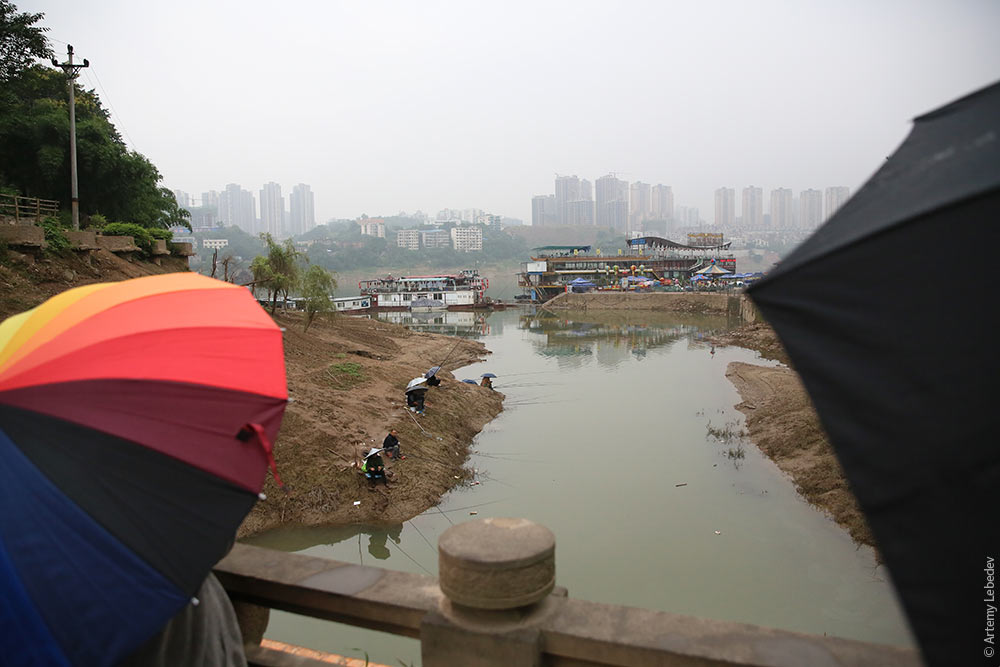 The Chinese love mops. There’s one by every store and every door. 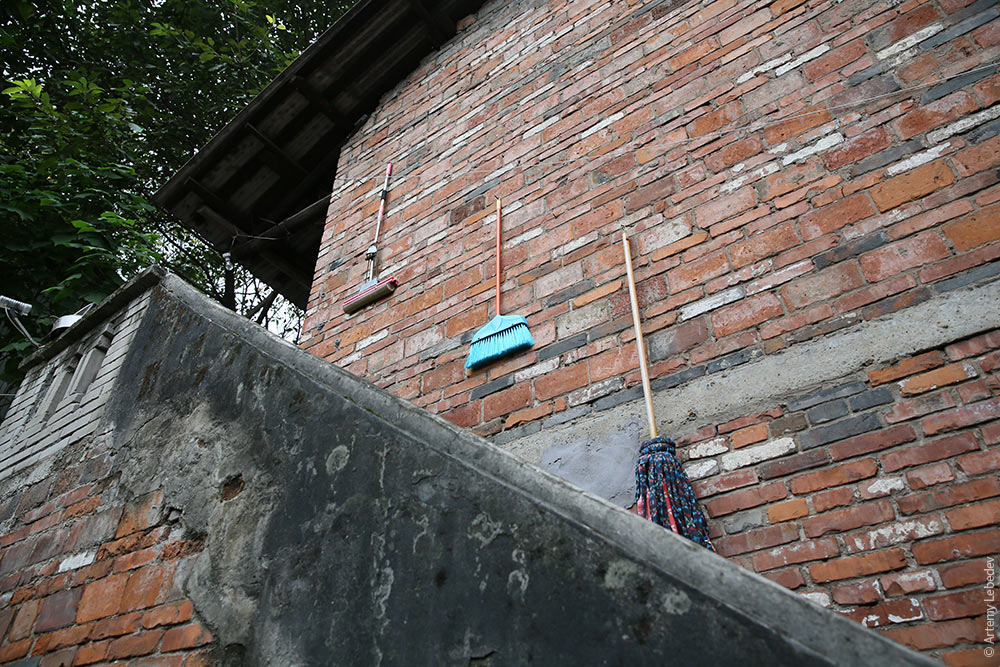 Chongqing is one of the few cities where some of the old China still remains. In Shanghai, Beijing and Xi’an, all the old neighborhoods have been completely destroyed. Kunming has half a street left. But Chongqing still has entire neighborhoods of authentic bliss. 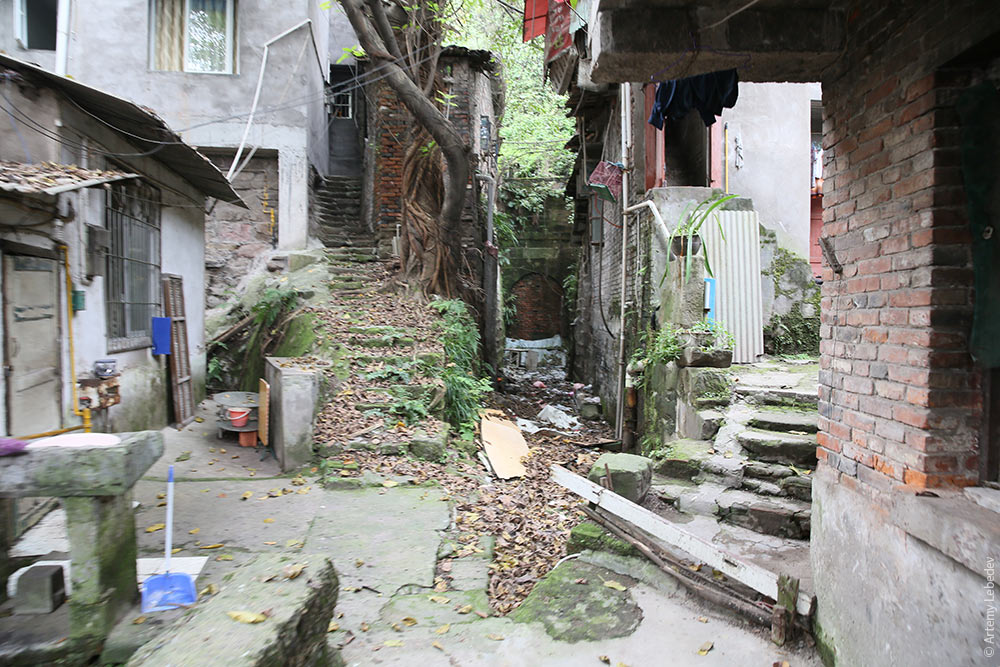 There isn’t anything like this left in the rest of the country. Everything has been modernized, unfortunately. 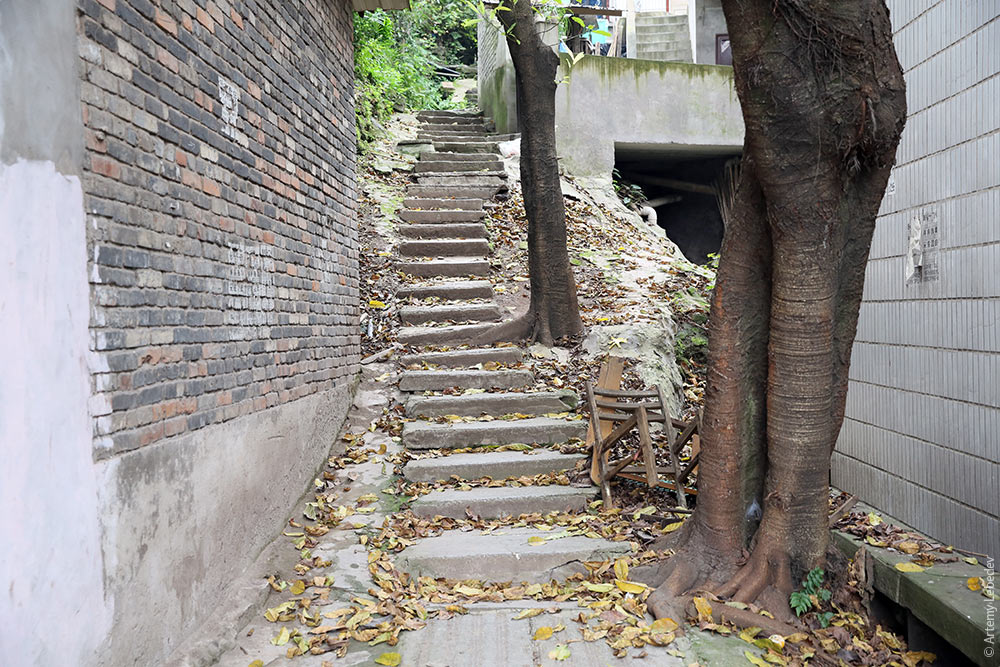 But here, it’s pure awesomeness. 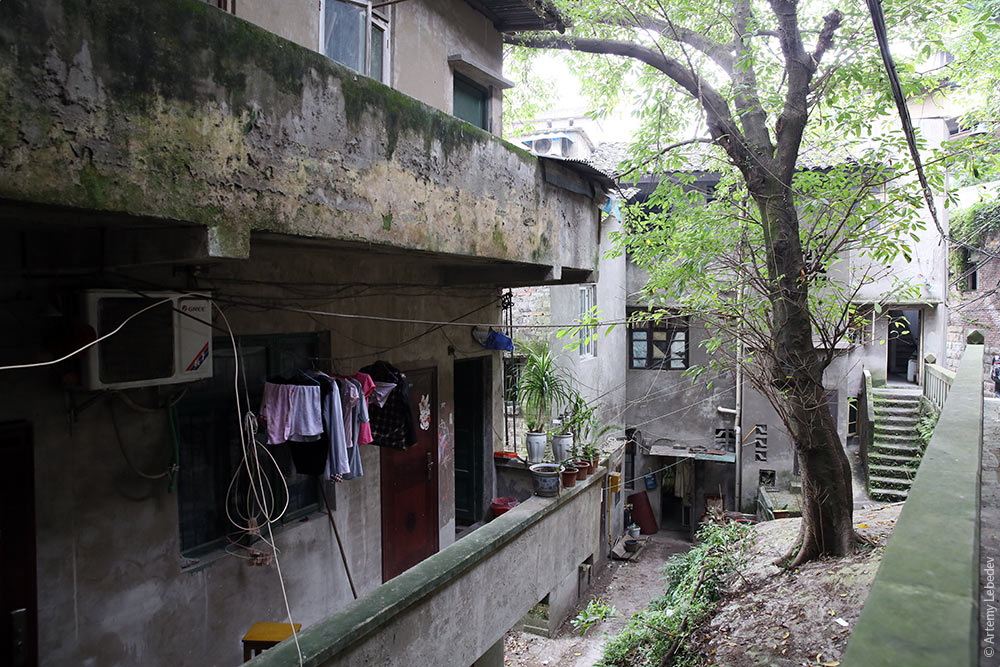 If someone wants to practice photographing people, they need to go to China. You can get right in anyone’s face with your camera here, they won’t care. People have no sense of personal space—that’s what happens when you’re one and a half billion. 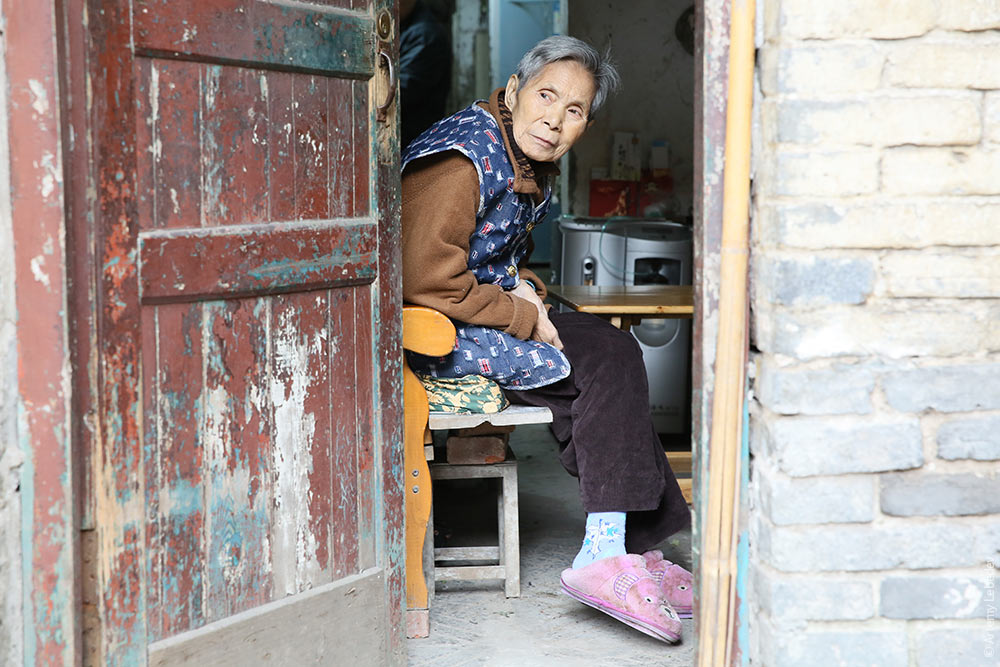 Sinologists claim that Chinese cats belong to a different genetic branch—they don’t groom themselves. So they’re always walking around filthy. 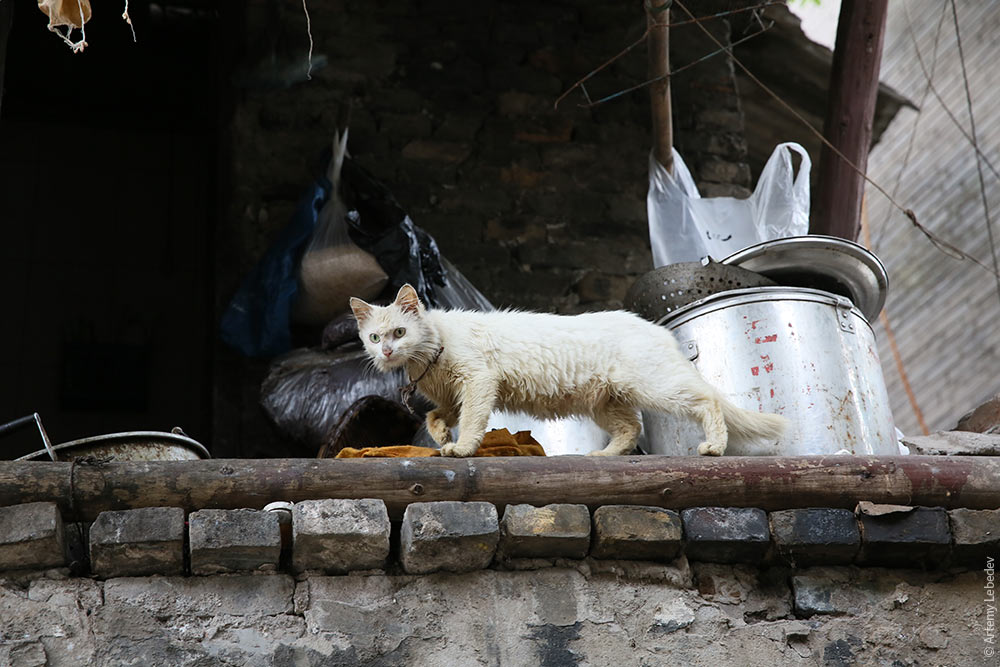 Rooftops. 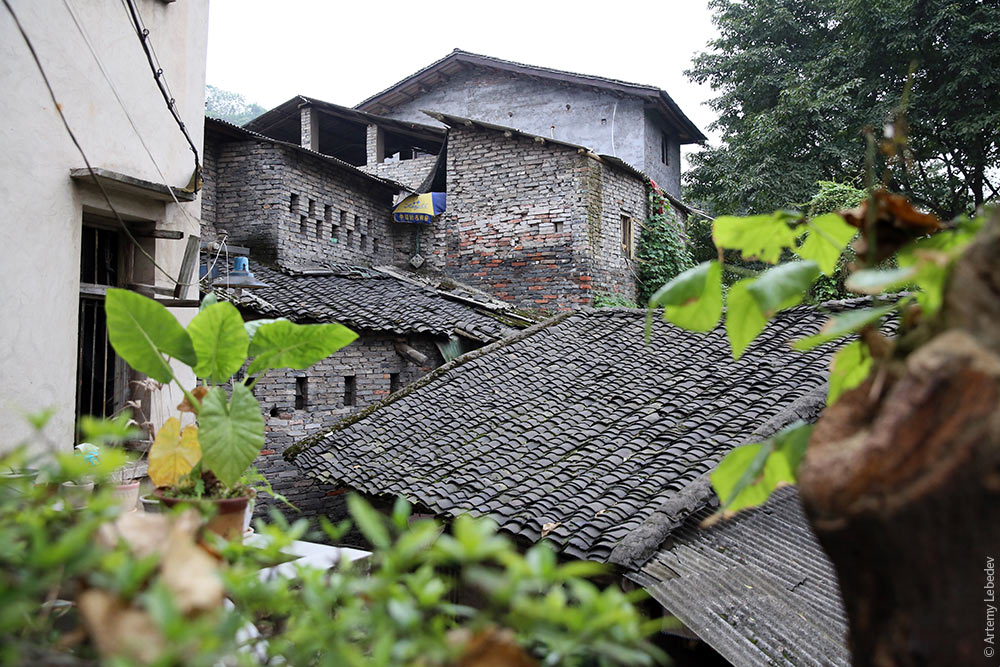 The old commercial streets that have miraculously survived now serve to entertain tourists. They’re as packed as the streets of old Italian towns during the summer. 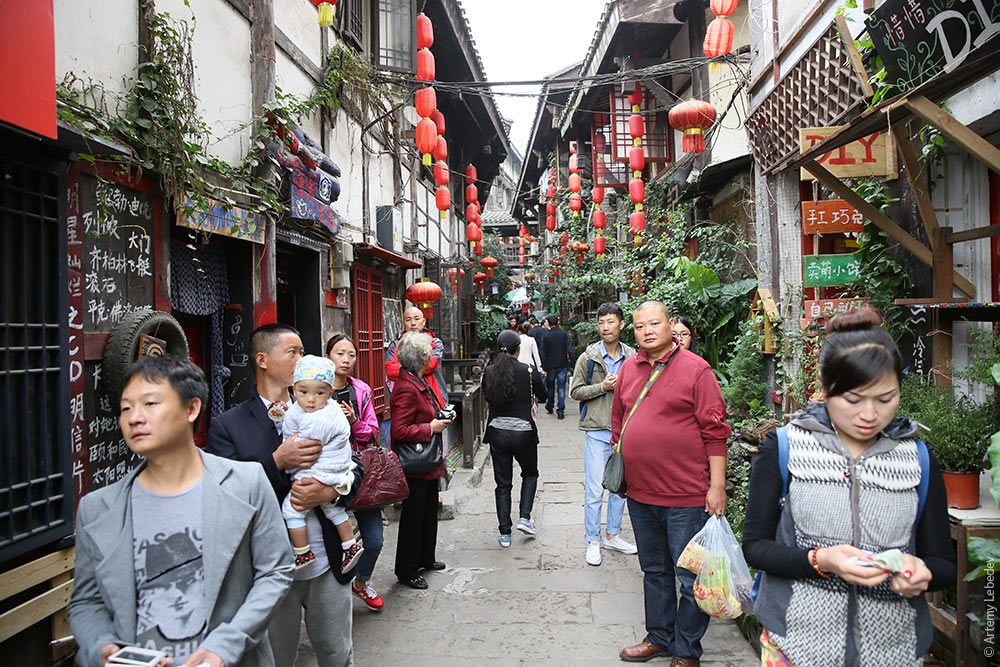 Chongqing. 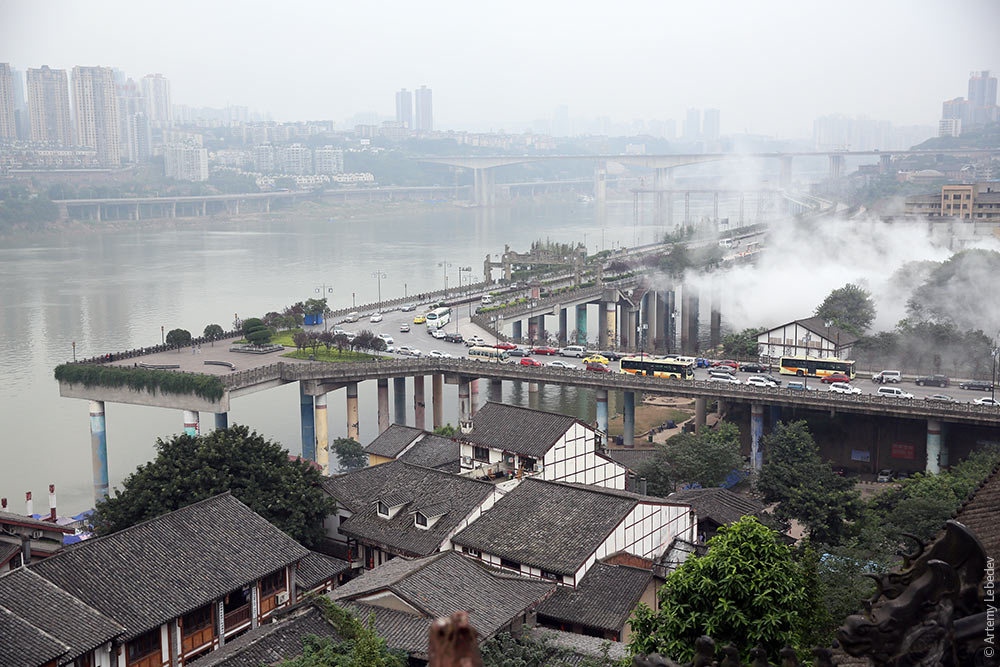 Every neighborhood has a photo of its local police officer on display (like in Yeniseysk). 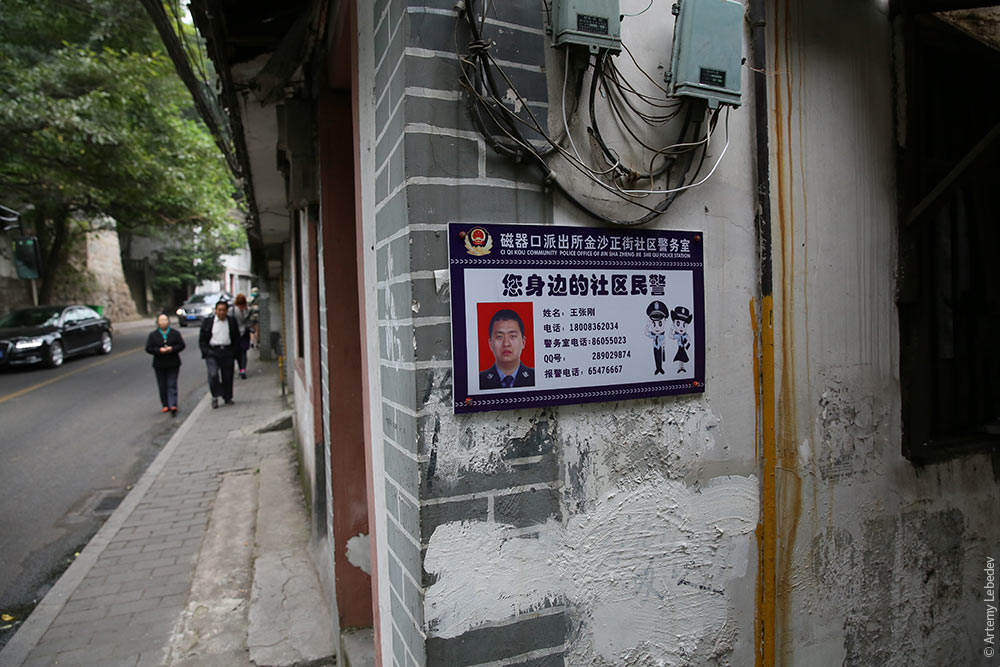 Pipes going down into the sewer in an elaborate formation. 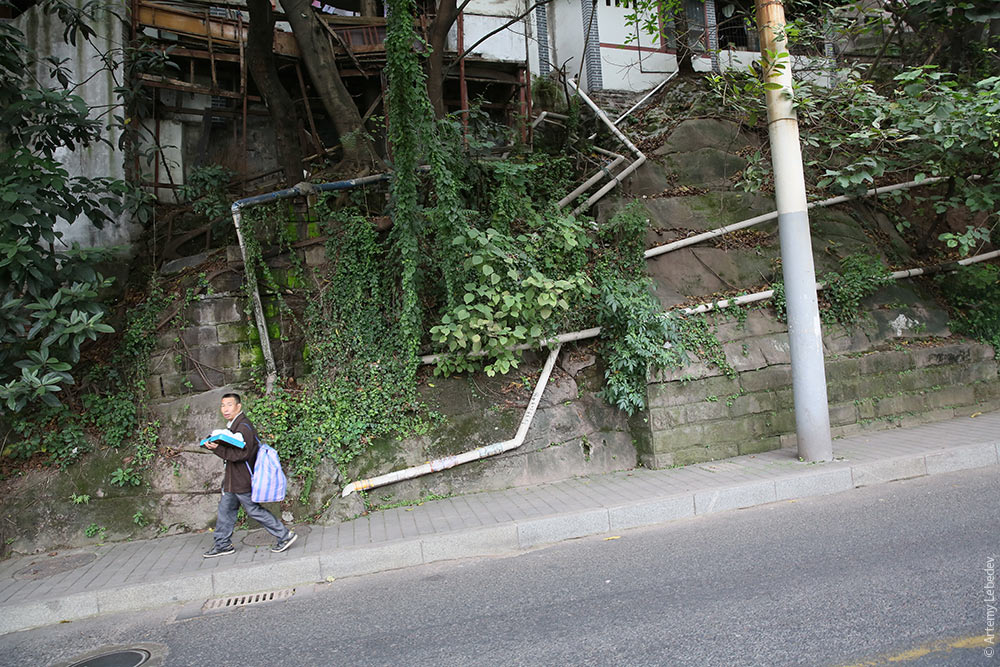 China flies to space! 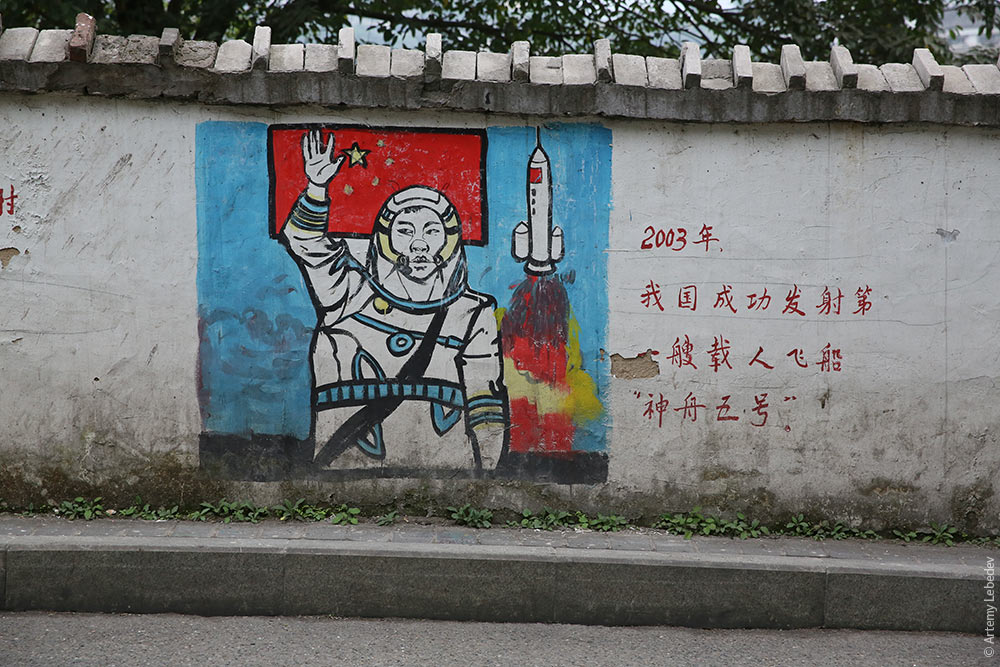 This is the only place where the unique profession of bangbang man still exists. These men have thick bamboo poles with rope tied to them. They use this contraption to transport every kind of cargo imaginable. 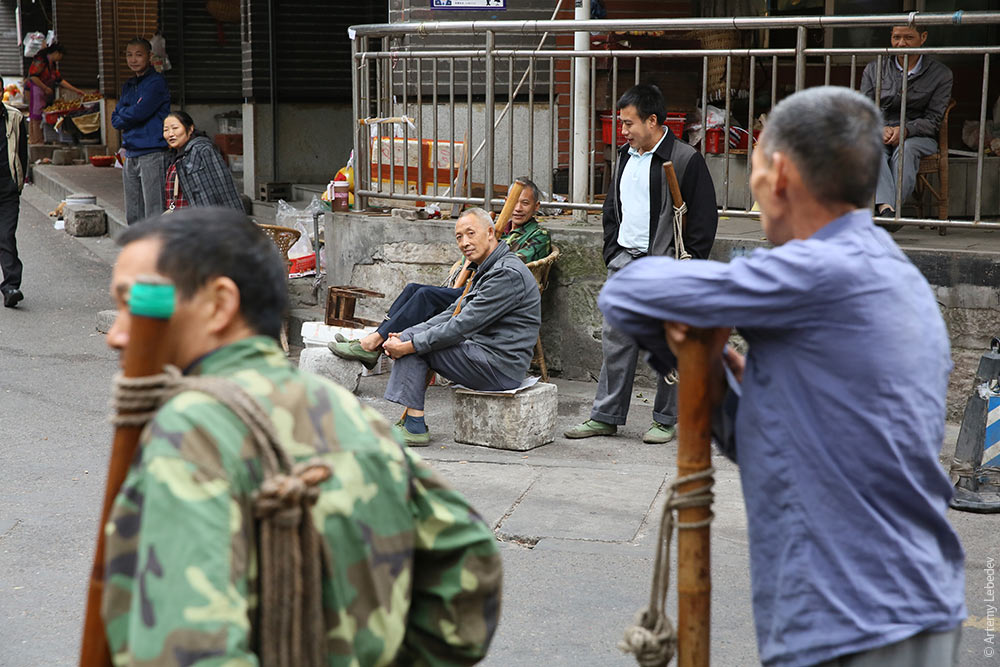 Bangbang men are essentially non-mechanized porters and movers. 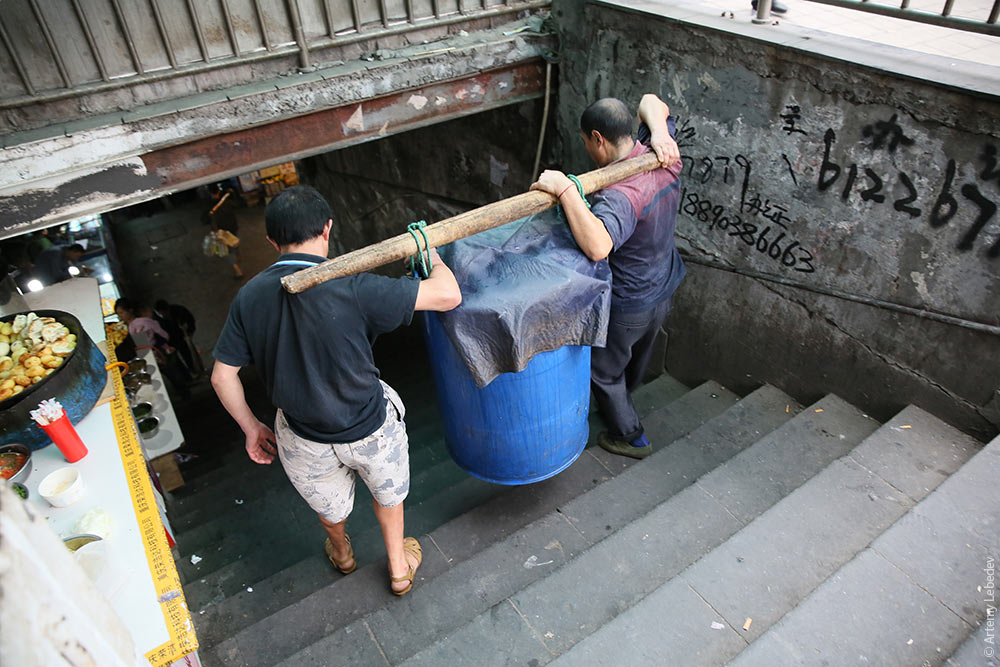 Chongqing is notable for its crazy highway and metro interchanges. 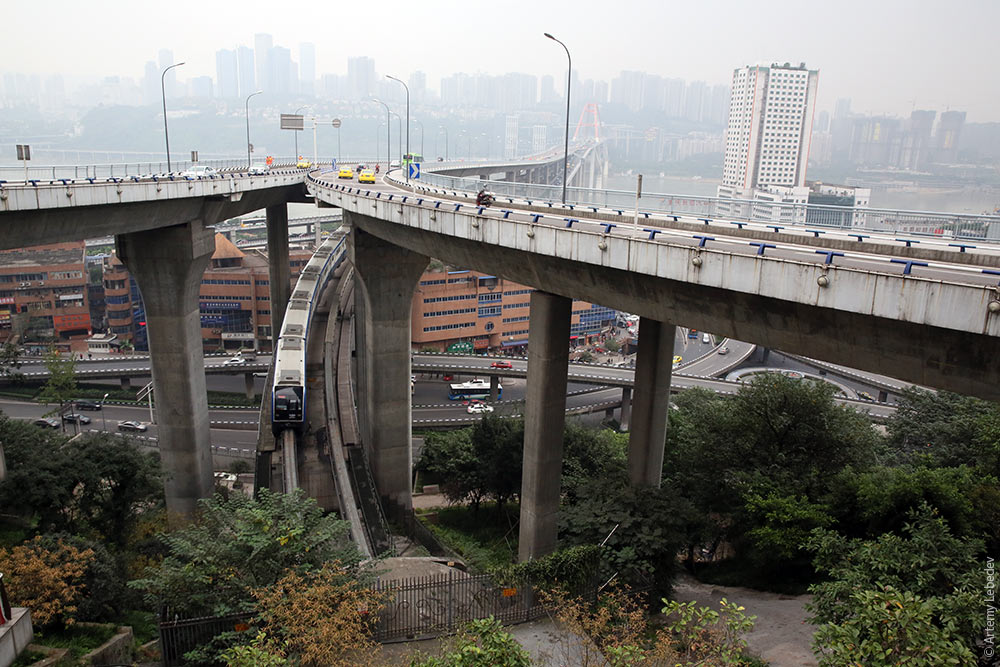 A woman sorting trash. 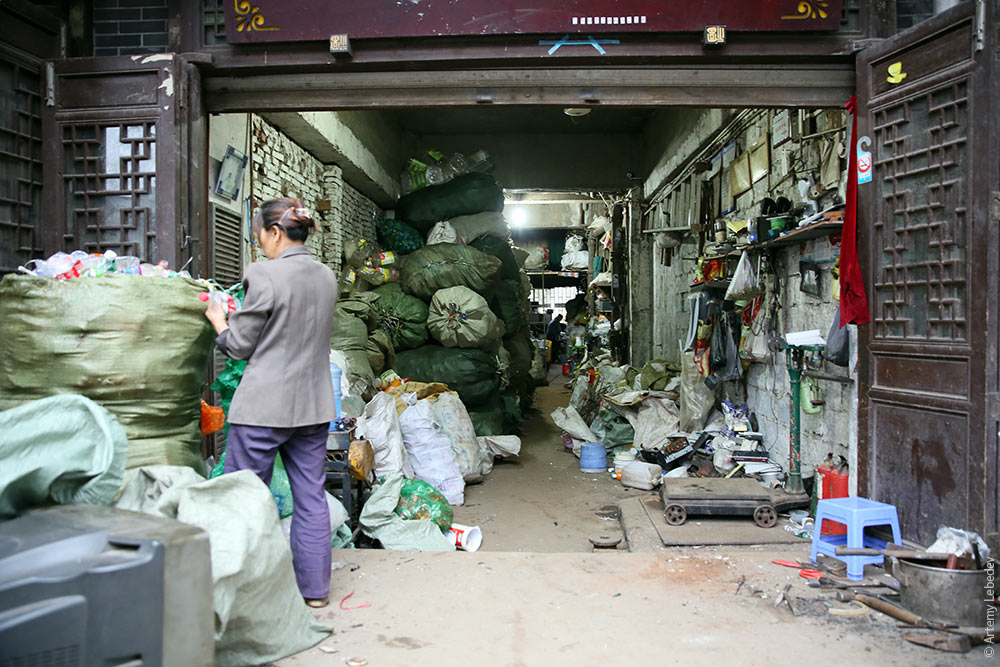 Surprisingly, almost no international cigarette brands are represented in China. They’ve got everything else here: Volkswagens, Starbucks, Apple, you name it. But when it comes to global cigarettes, there’s only Marlboro. The rest is all local crap. 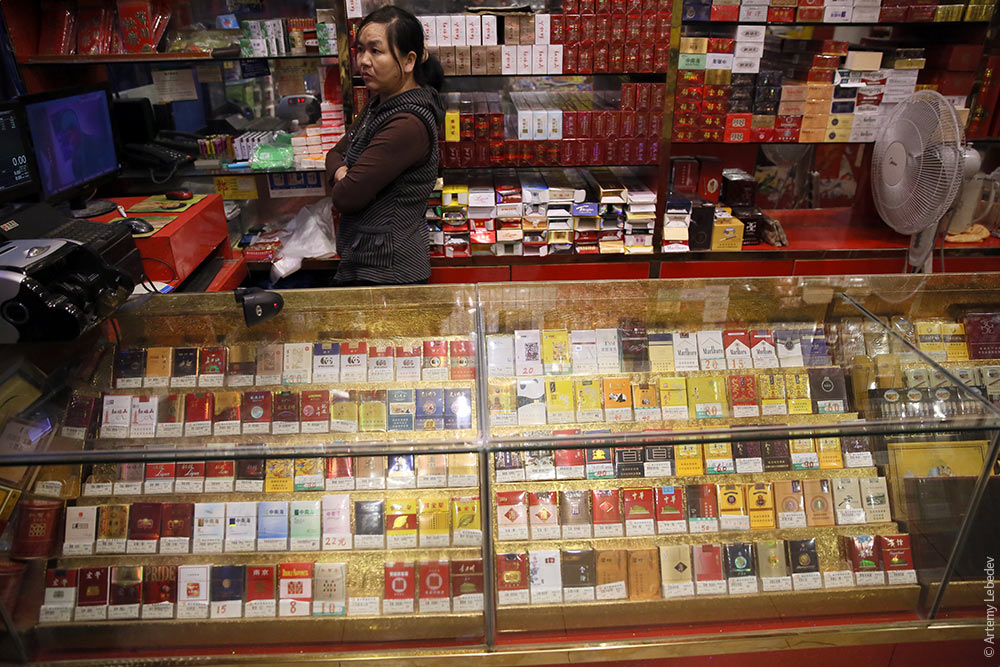 Gucci, Cartier, Louis Vuitton—there’s more of all this than you can shake a stick at. 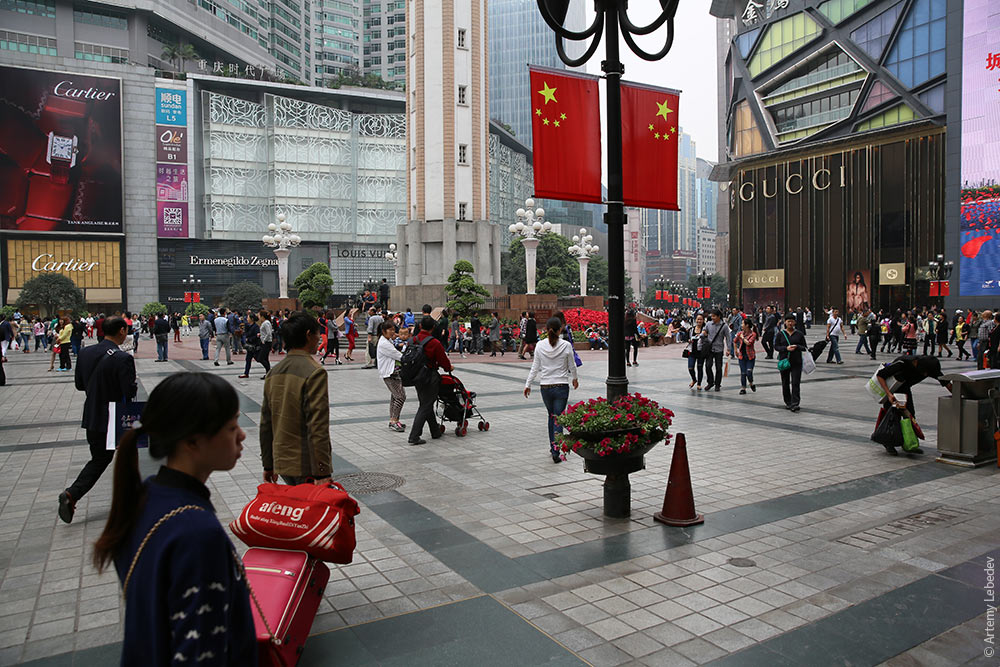 I love the proverb “Before the fat one slims, the slim one will die.” 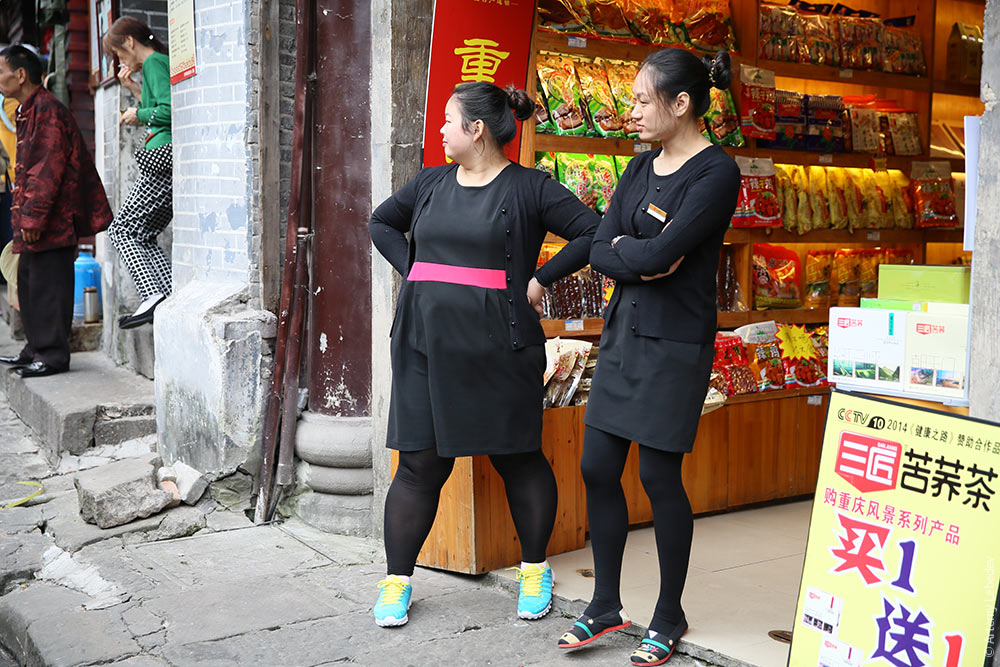 The city is insane and magnificent. It reminds me of South American cities in some ways (which would be a compliment for other nondescript, cookie-cutter Chinese cities). 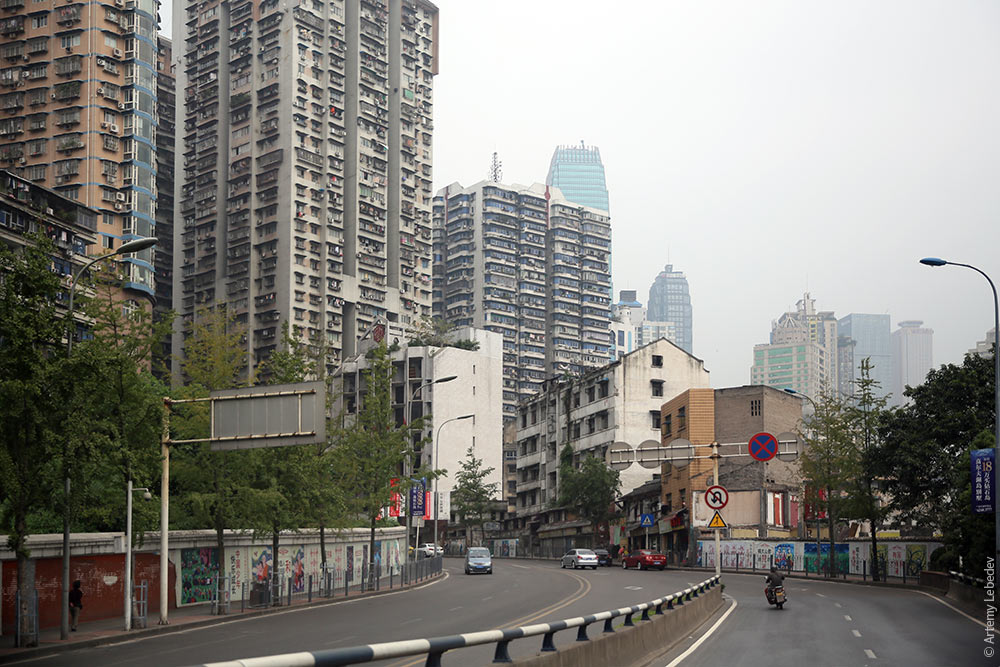 All the apartment building rooftops have been turned into gardens here. 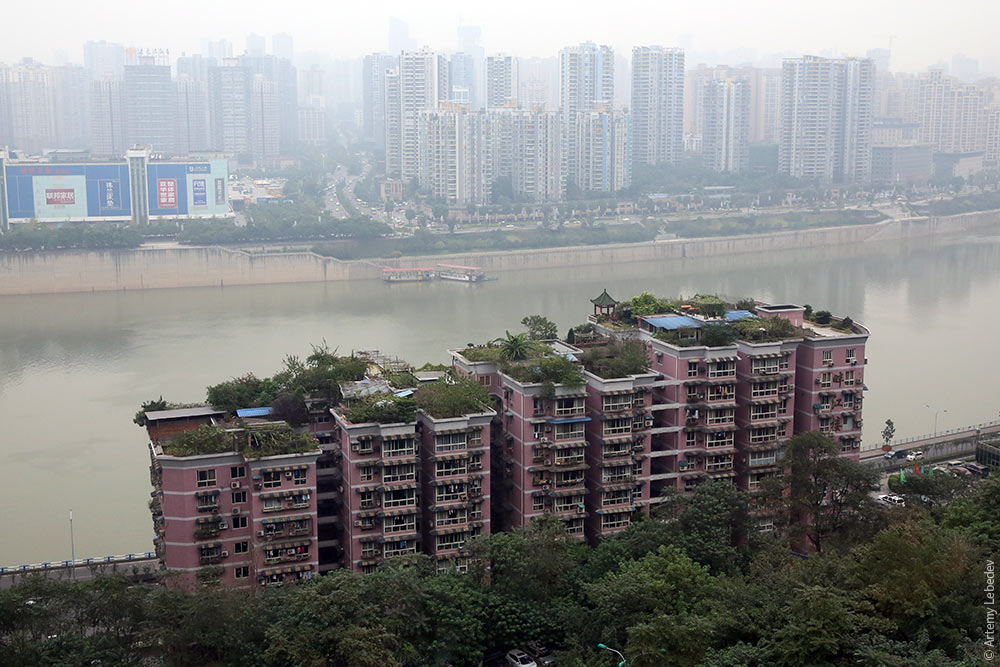 The view from the 38th floor. 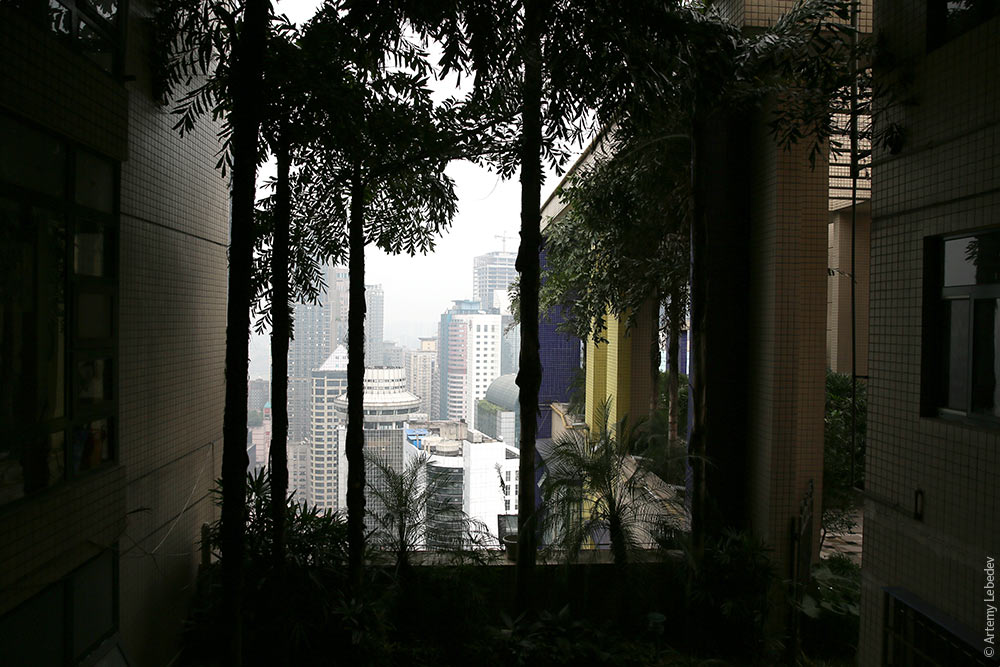 The view down from the same floor. 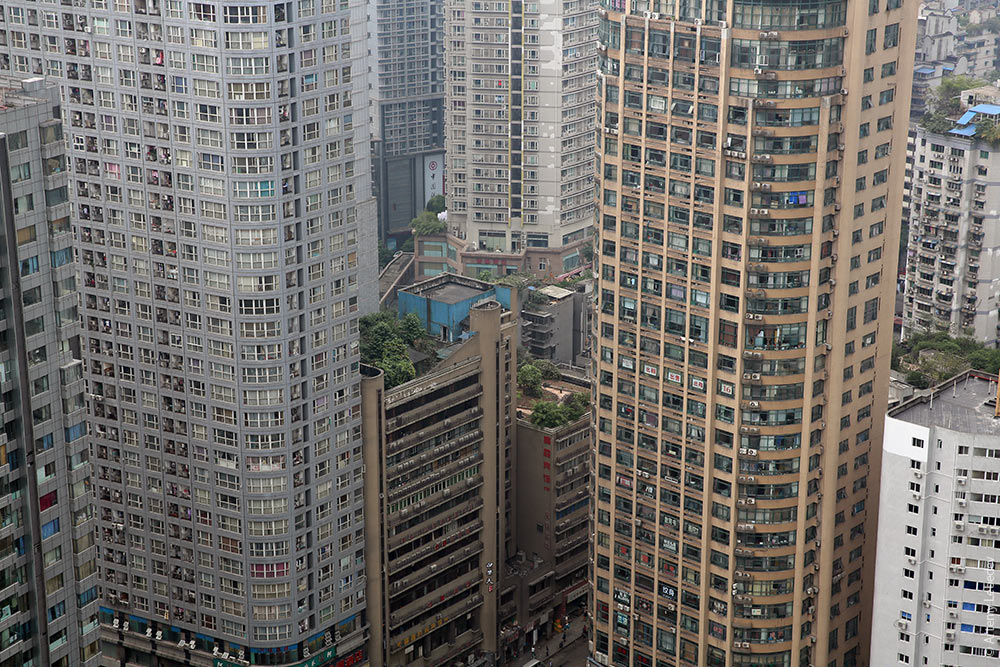 The insane Chongqing monorail. 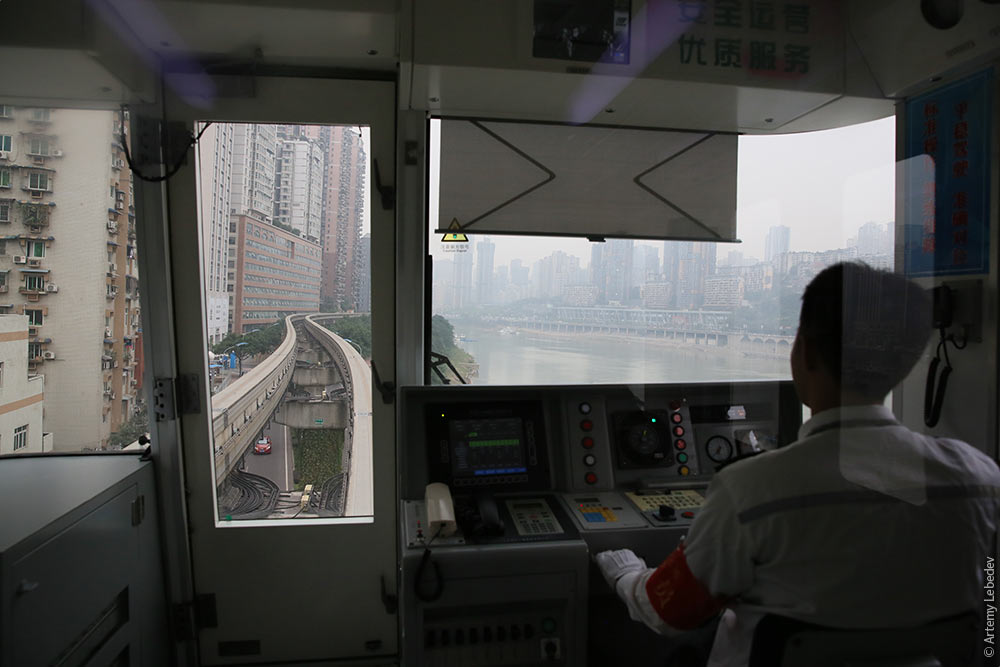 In China, they X-ray your luggage not only at airports and train stations but also at every metro station. Here, a special person with a lollipop sign doses out the number of passengers placing their suitcases on the conveyor belt. 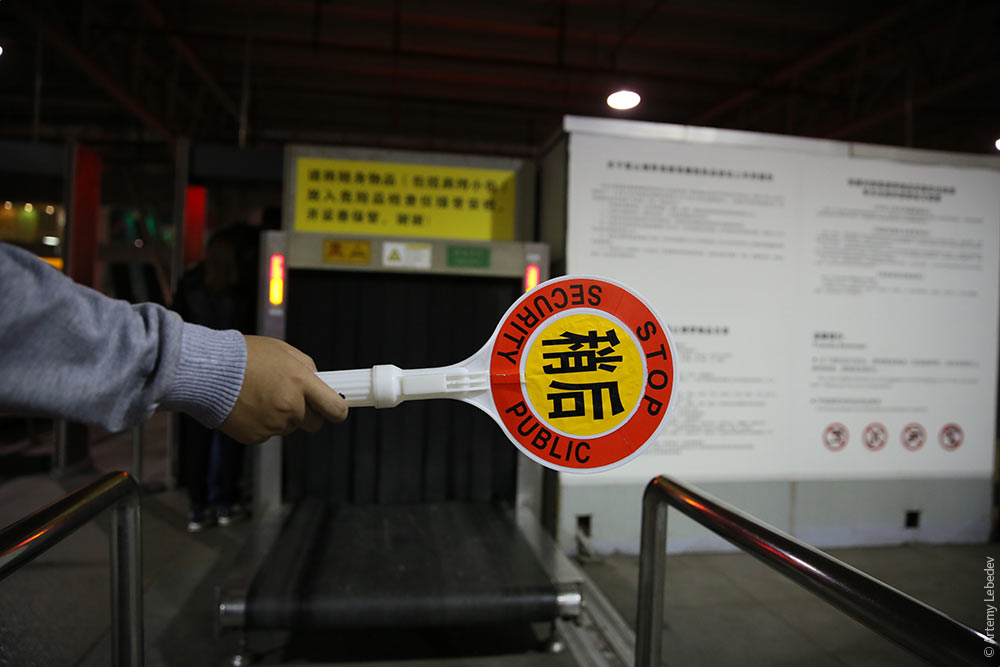 It’s worth making the trip to Chongqing just to see it alone. The place is little known and underappreciated. |